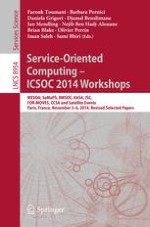2015 | OriginalPaper | Chapter
Learning ‘Good Quality’ Resource Allocations from Historical Data
Authors : Renuka Sindhgatta, Aditya Ghose, Gaargi Banerjee Dasgupta
Published in: Service-Oriented Computing - ICSOC 2014 Workshops
Publisher: Springer International Publishing
Activate our intelligent search to find suitable subject content or patents.
Select sections of text to find matching patents with Artificial Intelligence. powered by
Select sections of text to find additional relevant content using AI-assisted search. powered by
